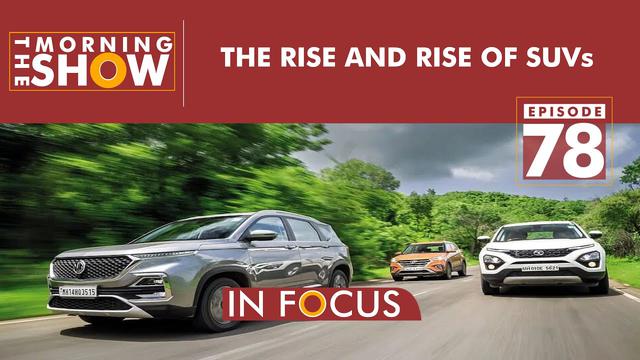Is there a greater contradiction than car manufacturers desperately trying to maximise profits during the chip crisis by prioritising high-end SUV sales yet aiming to avoid CO2 emissions-related fines by selling as many electrified vehicles as possible?
How much profit varies from vehicle to vehicle but one glimpse as to just how much margin can be in an SUV came when Jaguar Land Rover revealed it had received £68,000 per car sold in the final quarter of last year after an extreme focus on producing Range Rover-badged cars. (Even then, it made a £9 million loss in the same period.)
But SUVs are, of course, inherently heavier and less aerodynamic, yet no more spacious, than their hatch equivalents. In turn, they’re less efficient and more polluting, be it from the tailpipe or in terms of the additional materials they require to manufacture.
Related articles
For Autocar Business webinars and podcasts, visit Autocar Business Insight

The demonisation of diesel has also played a part in rising CO2 from them; petrol economy on larger, heavier vehicles is exponentially worse. Today, data from Jato Dynamics suggests only sports cars, luxury saloons and vans have worse average tailpipe emissions than SUVs, hence the need to sell electrified models to offset them.
Car makers will argue they are only giving people what they want. Back in 2000, more data from Jato suggests that 3.7% of all European sales were SUVs. In 2020, that figure was 40%, up from 22% in 2015, so this is not a trend that has run out of steam yet. We may want to save the planet, but it seems not at the expense of our high-riding cars.
Some would argue the SUV body style plays a role in reducing emissions. It inherently suits an electric vehicle, which typically sits higher anyway as a result of the battery fitting along the floor of the car’s platform.
If giving people the style of car they want encourages them to go electric, perhaps there’s a logic to pursuing this slightly counterintuitive route. Even so, anyone driving a 2.5-tonne EV, bluff body shape and all, would do well to pause before lecturing too strongly about their environmental credentials.
Car ReviewLand Rover Range RoverRead our full road test reviewRead more
Yes, profits drive investment, which in turn drives the development of low-emission vehicles. This is an industry where progress carries a high price tag. But it also needs to tread carefully.
The use of emissions credits from selling electric cars to offset the sales of highly polluting ones may be perfectly within the legislative framework, but it once again leaves the car industry walking a fine line that an increasingly environmentally conscious world might one day wake up and question.




